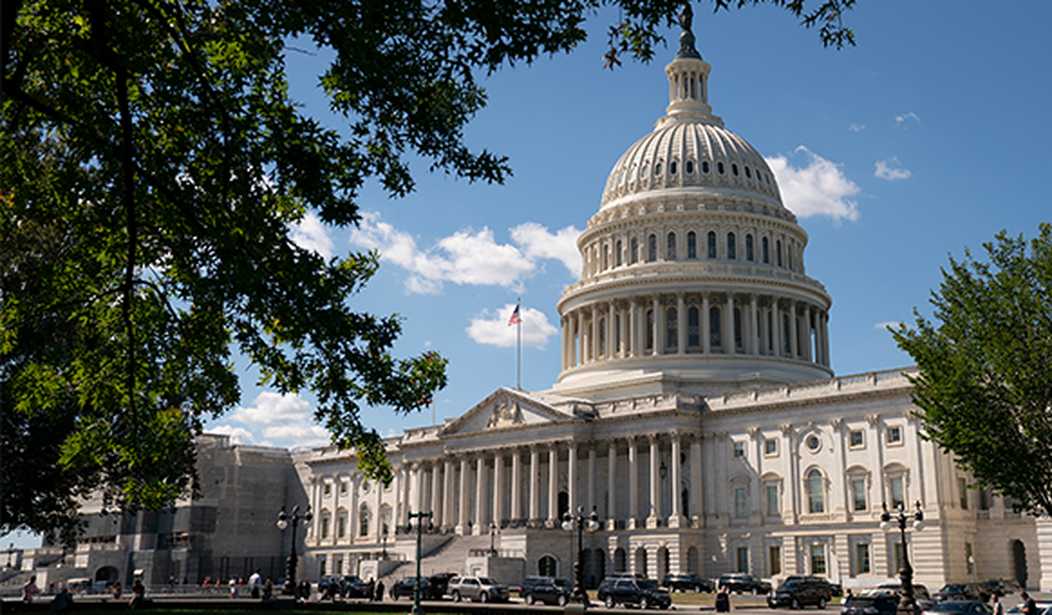There remains but two months before the current federal fiscal year ends September 30th. Half of that remaining period will be spent by lawmakers in their home states and districts during the traditional August recess.
When the Congress reconvenes after Labor Day, the Republican Party will be in a position to either strengthen its currently slim majority in the House, or risk losing it.
Much depends on whether the GOP can discipline itself to stick to a strategy that is laser-focused on the 2024 election, rather than on passing bits of legislation playing largely, if not solely to its base for short-term gain.
A key factor in this equation is whether the appropriations process -- which even in the most nonpartisan of times presents a messy picture to the American electorate – can be managed by Speaker McCarthy in such a way as to avoid a government “shutdown,” which already is being whispered in the corridors under the Capitol dome.
Some Republican budget hardliners claim to not “fear a government shutdown,” and others look to “stare down” Democrats. The fact of the matter is that in recent decades, so-called “shutdowns” rarely benefit the Party orchestrating them.
Forcing a shutdown over specific issues (even very important ones), such as spending on abortion or constructing a few more feet of a border wall, may reap short-term political gain, but likely will come with long-term political harm.
Historically, pushing the budgetary process to a stand-off with a president of the other political party rarely has demonstrably helped the party driving the process in the Congress; and then only if it is part of a coherent and consistent longer-term strategy.
Recommended
The best example of this is in the late 1995-early 1996 budget showdown between the then-new GOP House majority led by Speaker Newt Gingrich and President Bill Clinton, who at the time was still licking his wounds after a historic shellacking in the 1994 mid-terms.
At the time, that three-week long “shutdown” was a public relations nightmare for the House GOP majority (I know, I was there as a freshman Member from Georgia). But the long-term benefit was historic.
The goal of the stand-off was not simply to pass a fiscal year budget or to force Clinton to accept as part of that budget bill a particular appropriations rider. Rather, the plan was to draw a bright line in the sand that told Clinton and the American electorate that the new Republican majority was serious about balancing the budget and putting the nation’s fiscal house back in order.
The strategy worked wonderfully, and by the middle of the very next year (1997) both the House and the Senate had passed, and Clinton had signed legislation that in fact balanced the federal budget for the first time in nearly three decades.
Contrast that strategically planned budget showdown with the much longer (at 34 days) December 2018-January 2019 stare-down between the Democrat-controlled House and Republican President Donald Trump. At the time, Trump was demanding funds for his preferred border and immigration policy initiatives. The resulting impasse was part of a tactical skirmish, not of a strategic plan.
In the end, the 2018-2019 shutdown, despite being the longest in our history, achieved little if anything of lasting importance for either political party or for the country.
Whether the American people will witness yet another “shutdown” this Fall (or next year even as voters will be casting early ballots in many states) remains uncertain. It is not clear if McCarthy will agree to even a partial omnibus “reconciliation” spending bill this year if there remain one or more of the dozen appropriations bills that could not win a majority of votes before the end of September. Whether the far-right Freedom Caucus insists absolutely that favored abortion or immigration limitations be included in certain of the spending measures also remains to be seen, but the signs already are indicating moves in that direction.
Becoming bogged down in a shutdown slugfest may please former President Trump cheering from the sidelines, but it would be a strategic blunder for the Party; signaling to the electorate beyond the GOP base that the current leadership lacks the strength and the vision to effectively govern, and perhaps even to be awarded a second, two-year term in the majority.
Governing is a serious game, and maintaining and projecting a clear and consistent strategy is far more important than any short-term tactical achievements. Unfortunately, with rare exceptions in recent years, the GOP seems not to understand that principle.
Bob Barr represented Georgia’s Seventh District in the U.S. House of Representatives from 1995 to 2003. He served as the United States Attorney in Atlanta from 1986 to 1990 and was an official with the CIA in the 1970s. He now practices law in Atlanta, Georgia and serves as head of Liberty Guard.
























Join the conversation as a VIP Member